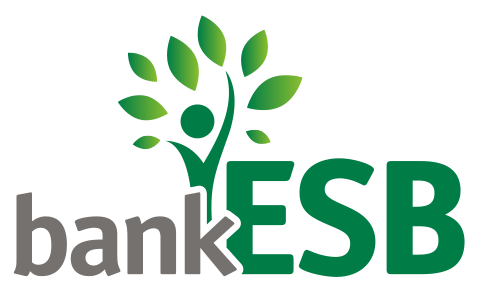Fraud Prevention: What You Should Know About Phishing, Smishing, and Vishing
There’s only one you, and at bankESB, we want to help you keep it that way! Here’s what you need to know about common scams that try to steal your personal info or identity!
Phishing: Watch your email
With a phishing scam, you may receive an email that appears to be from a company you do business with or trust, like your bank, credit card company, or even a package delivery service. The email, which is actually from a scammer, then directs you to a fake website, where you’re asked to provide sensitive information, like your online banking passwords, Social Security number, or bank account information. Scammers can then use that information to steal money from you, apply for loans, or commit other acts of fraud. Phishing emails may also include an attachment that when opened, will download a virus, spyware, and other malware onto your computer.
Smishing: Approach text messages with caution
With smishing attacks, scammers use text or SMS messages to contact you. In a smishing scam, you may receive a text message from a company or organization you are familiar with that prompts you to take immediate action by clicking on a link. When you click on that link, you’re directed to a website that asks you to provide personal or financial information. Clicking on that link could download malware onto your device. An example of a smishing scam may involve a text message that appears to be from the IRS telling you that you owe money.
Vishing: Trouble could be calling
If you receive a phone call or voicemail (often pre-recorded calls) that tells you that you need to take immediate action, you’re likely the victim of a vishing attack. The goal of the attack is simple: to get you to provide personal information over the phone. Scammers can be sophisticated in their vishing attacks and often use spoofing software to make it appear on caller ID that they are a legitimate company.
In a vishing attack, you may get calls from your Internet service provider or cellphone provider telling you that your account has been breached. It could also be from someone telling you that you won a prize or money and need to provide personal information to claim it.
How to spot a phishing, smishing, or vishing scam
Here are some clues to help you identify a potential scam:
- Typos and poor grammar in texts or emails
- Requests for you to provide online passwords or other personal and sensitive information
- Messages that convey a sense of urgency
- Emails that contain suspicious links or different domain names
- Communications that address you as “Dear Customer” instead of your name
Ways to protect yourself
Here are some ways you can reduce the risk of a phishing, smishing, or vishing attack.
- Never give out personal information over the phone or on a website you aren’t familiar with. If you are unsure if a message or call is legitimate, contact the company directly using their established number or a contact form on their established website.
- Never click on links from users you don’t know.
- Sign up for identity theft protection.
- Regularly check your accounts and balances and set account alerts to notify you about account transactions.
- Monitor your credit and request free credit reports.
- Stay up to date on the latest scams.
Please be aware that bankESB will never call, email, or text you to ask for your personal or account information. If you believe you received a fraudulent email, text, or phone call from a scammer pretending to be us, please contact Customer Care immediately at 855.527.4111.


